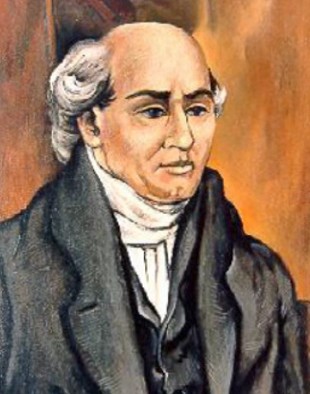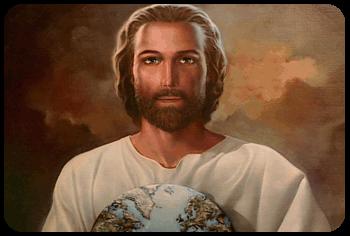|
**List: Punjabi Ministry
the Bible
( al-Kitáb, کتب )
Panjabi...
"Panjabi, or Punjabi, is spoken by almost 40
million people of
whom 55 per cent are Pakistani. Panjab, a Sanskritic name mean-
ing ‘land of the five rivers’, is an historic area, the
migratory
route through which the Aryan ancestors of the present-day
Panjabis entered the Indian subcontinent. It was a seat of medi-
eval Indic culture and the home of the Sikh
religion. Although
Panjab was originally a single region, linguistic differences had
developed there even before the Partition (1947). In West
Pakistan both Panjabi and
Urdu are now official languages.
The
two have been associated since the period of the Mogul Empire,
with the result that Western Panjabi is written in
Persian script
and the religious vocabulary is derived from Urdu. (See
Panjabi:
Persian.) In the Indian Panjab the language is written in Gur-
mukhi character, and manifests Sikh influence, dominant in the
eastern Panjab since the late 18th century. This usage developed
as a result of the writing and propagation of the
Granth, the Sikh
holy writ. Panjabi is an Indo-Aryan tongue, related to
Hindu-
stani, Rajasthani, and other
tongues spoken across northern
India. Gurmukhi character is a
variant of Devanagari script,
which was introduced by Guru Angad. A
vernacular Panjabi
literature is being developed."--1000 Tongues, 1972 [Info
only]
|
**File: Punjabi Bible History (3)--1860
S. Bagster [Info only: Punjabee, or Sikh.]
Gurmukhi Character
"1815 New Testament 1818
Pentateuch
1819 Joshua-Esther 1821 Job-Song of Solomon
1826 Isaiah-Ezekiel Chap. 26 Serampore MP
Translated under the supervision of the
Serampore mies."--1000
Tongues, 1972 [Info only]
|
"St.
Matthew’s Gospel, American Mission
Press, Ludhiana, 1840; tr. by J. Newton, of
the American Presbyterian Mission: the Gos-
pels and Acts, ABS, Ludhiana, 1847. Genesis and Exodus, chapters
1-20, BFBS(?), Ludhiana, 1851; tr. by L. Janvier; the Psalms,
BFBS,
1863. The New Testament, 1868; tr. by Mr. Newton. Daniel and
Jonah, 1874; tr. by J. Harvey, of the Government school at Amritsar,
revised by Mr. Newton: Joshua, 1876; Samuel and Proverbs, 1878;
Ruth, Esther, and Ecclesiastes, 1879; Genesis and Exodus, chapters 1-
20,
1889; Judges and Malachi, 1892; Exodus, Amritsar, 1893; Leviticus
and 1 Kings, 1894; 1 Chronicles, 1896."--1000 Tongues, 1939
[Info only]
|
"1840 Matthew 1841
John American MP, Ludhiana
1847 Gospels Acts ABS, Ludhiana
1851 Genesis-Exodus Chap. 20
North India Auxiliary BS, Ludhiana
1860-1861 Gospels Acts (revised) ABS, Ludhiana
1863 Psalms 1866 Gospels Acts (further
revised)
1868 New Testament 1874-1896 O.T. Portions
Panjab Auxiliary BS
Translated by mies. of the American Presbyterian Mission, in-
cluding J. Newton, L. Janvier, and J. Harvey."--1000 Tongues, 1972
[Info only]
|
"1895 Gospels Acts BFBS,
London
1900 New Testament Panjab Auxiliary BS
A revision prepared by a committee under the supervision of E. P.
Newton."--1000 Tongues, 1972 [Info only]
|
"Isaiah, 1902; tr. by H. E.
Perkins and E. Guilford, of the CMS. CP: BFBS."--1000
Tongues, 1939 [Info only]
|
PANJABI--1000 Tongues, 1939 [Info only: Gurmukhi characters
"1905" John 3:8-16 unknown.]
"1902 Isaiah Panjab Auxiliary BS
Translated by H. E. Perkins and revised by J. Harvey and E. Guilford,
Church MS."--1000 Tongues, 1972 [Info only]
|
"1950 Genesis 1953-
1954 Gospels 1955 New Testament
BS of India, Pakistan and Ceylon, Bangalore
1959 Bible BS of India and Ceylon, Bangalore
Translated by Sundar Singh, C. H. Loehlin, Habans Singh, and
Sachha Singh Taj."--1000 Tongues, 1972 [Info only:
GURMUKHI CHARACTER "1953" Mark 1:2 probably incorrect (Isaiah).]
|
File: John / John (like 1953)
BSO [Info only: Gurmukhi Character. WRONG TEXT.]
File: Romans / Romans (like
1953) BSO [Info only: Gurmukhi Character. WRONG TEXT.]
File: Bible / Bible (like 1953)
BSO
Info Source: https://bible-server.org/Bible.php?translation=PUN
PANJABI--1000 Tongues, 1972 [Info only: Roman Character
"n.d." Mark 1:2 incorrect (Yas’aiáh paigambar = Isaiah prophet).]
Panjabi: Dogri...
"The Dogri dialect of Panjabi is spoken in Jammu,
Gurdaspur,
and Sialkot (adjacent areas of India and
West Pakistan)."--1000 Tongues,
1972 [Info only]
"Spoken by some 459,000 people
in Gurdaspur, Sialkot and Jammu,
northern Panjab, India."--1000 Tongues, 1939 [Info only]
|
PANJABI: Dogri dialect--1000 Tongues, 1939 [Info only: Devanagari
characters n.d. John 3:21-22 unknown.]
Devanagari Character
"1818-1826 New Testament Serampore MP
Translated under the supervision of the
Serampore mies."--1000
Tongues, 1972 [Info only:
DEVANAGARI CHARACTER "1826" Mark 1:2 unknown.]
|
**File: Panjabi: Persian Bible History
DOGURA, OR JUMBOO.
(MOUNTAIN PUNJABEE.)
"THE Dogura, or Jumboo,
dialect is spoken in the hilly country on the north of the Punjab, and
east of the river Chenab and of Cashmere. Much confusion prevails in
the accounts of the Seram-
pore mies. respecting the extent of territory in which this dialect is
predominant; and the
number of inhabitants to whom it is vernacular has never yet been
ascertained.
The Dogura dialect deviates in many respects from the Punjabee, and
approximates pretty closely
to the Cashmerian dialect. It
has several permutations of letters and inflections peculiar to itself,
but
preserves indubitable indications of its Sanscrit origin. In the specimen of the Lord’s Prayer in
Dogura, given by the Serampore mies., twenty-five words were similar
to those in the Hindu-
wee and Bengalee specimens, while
the remaining words were found to be more immediately connected
with the Sanscrit.
A version of the
New Testament in Dogura was undertaken at Serampore in 1814; in 1820 the
first three Gospels left the press, and in 1826 an edition of the entire New
Testament, consisting of
1000 copies, was completed. Opportunities for the circulation
of the version seem to have been
wholly wanting. In 1832 it was stated that a few copies had been given
to some natives who had
visited Calcutta, but no farther accounts have since been furnished relative
to the distribution of this
edition."--The Bible of Every Land. (1860, Second Edition)
Samuel Bagster [Info only]
|
|


